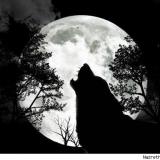You can tell you're entering a temple by the shoes.
Men's shoes, women's shoes. Adult shoes, children's shoes. Sandals, brogues, sneakers: even a few dress boots. All scattered, higgledy-piggledy, across the floor of the entryway. Metaphor meets reality: to reach the holy, you have to dodge the profane.
In a standing temple, the doorway would be lined with wooden shelves to hold the shoes, but this is a temporary temple: a Lutheran church lent (with a generosity and hospitality that I find, in this time of bitter division, deeply moving) to the local Hindus for their holiday celebration.
(Back in the old country, there would be a mosquito-cloud of shoe-wallahs hovering around the door: young boys who, for a small consideration, will guarantee that your shoes are still there waiting for you at your worship's end. Here in well-fed America—let us acknowledge the fact with all due gratitude— they're not needed.)
For some, taking off your shoes before you enter a holy place might be about cleanness and uncleanness—think “ritually fit” if that language makes you uncomfortable—but for me, it's a simple matter of touch. For me, a pagan—a guest at a sister community's celebration—Earth, the ground of all being, is also the source of all sanctity, and shoes come between us and her.
After the midnight worship, my friend and host—himself a temple member—retrieve, on our way out, the sandals that we'd earlier left in a corner.
(Having arrived early to help with set-up, we'd managed that prime stashing-place; we'd kicked them off because those fortunate enough to carry the god-images to the altar need to be barefoot. The pujari—priest—preceded the god each time, ringing tiny cymbals and chanting a praise-song as we went. Music accompanies gods wherever they go.)
-
 In general terms, bare feet as a religious practice seems to be more characteristic of Semitic-speaking, rather than Indo-European
In general terms, bare feet as a religious practice seems to be more characteristic of Semitic-speaking, rather than Indo-European -
 God said, 'Come no nearer; take of your sandals; the place where you are standing is Holy ground.' Exodus 3:5 When did that cus
God said, 'Come no nearer; take of your sandals; the place where you are standing is Holy ground.' Exodus 3:5 When did that cus




















